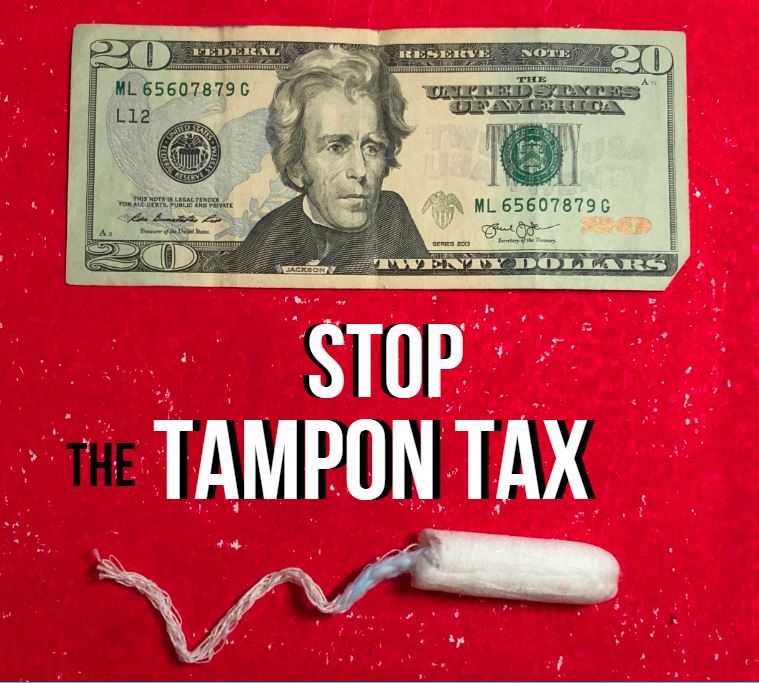Tampons are NOT a Luxury Item
December 6, 2019
“Ewwww!” is what I heard when my article, “We Need to End Period Stigma. Now.” was released and featured two tampons on the main page. This type of behavior not only contributes to the period stigma that piece addressed, but also helps result in an injustice to all women: the tampon tax.
The tampon tax is present in 33 out of the 50 states, including North Carolina. It means that while products like bandaids, sunscreen, and even Viagra are considered “essential goods” and are eligible for tax breaks, menstrual products are not and are considered luxury items. According to “What Life Would Look Like Without the ‘Tampon Tax’”, this means, that period supplies are taxed twice, for both payroll taxes and at the register.
What this means for low-income girls and women and especially the 14% below the poverty line, is that they will have to make a choice to either buy food or a box of tampons. They usually don’t pick the tampons and according to Nadya Okamoto, instead use toilet paper, socks, and cardboard to replace menstrual products. This is a common occurrence, and in fact, food banks and shelters say period supplies are among their most-requested items. Those who do not have access to menstrual products are at risk of infection and missing school or work.
If you don’t believe that tampons take away a good amount of money, just follow along: women typically use one box per cycle, and menstruate about once every month, for 40 years. This can add up to average cost of $5,600 dollars in a woman’s lifetime.
The problem is not as simple as this tax, but lies in sex-based discrimination. Gabe Asermely, Green Level Sophomore male guessed, “The tax probably exists because the people who make laws like this are mostly men and so they don’t understand the importance of products like that.” He’s right.
The tampon tax takes its roots from the lack of women in court. Because state governments are usually filled with a majority of men, especially in higher seats, the decision for a woman’s body usually still ends up in their hands.
But it’s not just a lack of representation, it’s a lack of education. When talking to students on this subject matter at Green Level High School, no one knew what the tampon tax was. Asermely said, “I didn’t know about it because it doesn’t affect me directly and not many people complain about it because it’s an uncomfortable topic.”
Isha Madasu, a sophomore female told me, “I didn’t hear about this because there hasn’t been enough coverage in the media about the tax and it’s not a commonly talked about topic.” These two students both have brought up that talking about periods is not a norm in school and our daily lives, but why shouldn’t it be when half of the world’s population experiences it?
Tampons and menstrual products are not just luxury items women can get by without. They are necessities. It is unacceptable to ignore the health and treatment of women’s bodies like this. Women and periods are the reason you are alive and breathing and reading this very sentence, so if we continue to allow room for the tampon tax, we will only be hurting ourselves.






